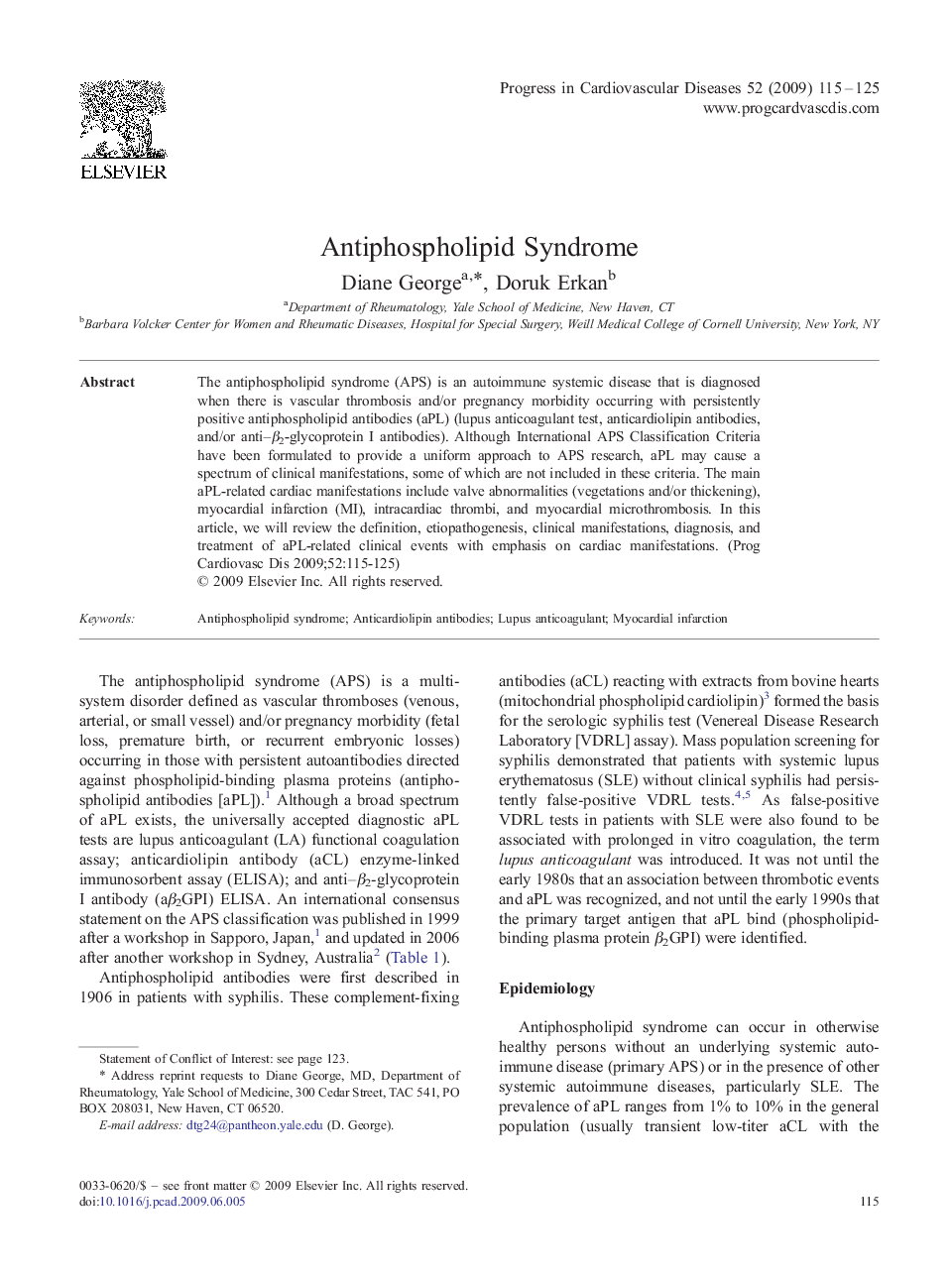| Article ID | Journal | Published Year | Pages | File Type |
|---|---|---|---|---|
| 3006874 | Progress in Cardiovascular Diseases | 2009 | 11 Pages |
The antiphospholipid syndrome (APS) is an autoimmune systemic disease that is diagnosed when there is vascular thrombosis and/or pregnancy morbidity occurring with persistently positive antiphospholipid antibodies (aPL) (lupus anticoagulant test, anticardiolipin antibodies, and/or anti–β2-glycoprotein I antibodies). Although International APS Classification Criteria have been formulated to provide a uniform approach to APS research, aPL may cause a spectrum of clinical manifestations, some of which are not included in these criteria. The main aPL-related cardiac manifestations include valve abnormalities (vegetations and/or thickening), myocardial infarction (MI), intracardiac thrombi, and myocardial microthrombosis. In this article, we will review the definition, etiopathogenesis, clinical manifestations, diagnosis, and treatment of aPL-related clinical events with emphasis on cardiac manifestations.
